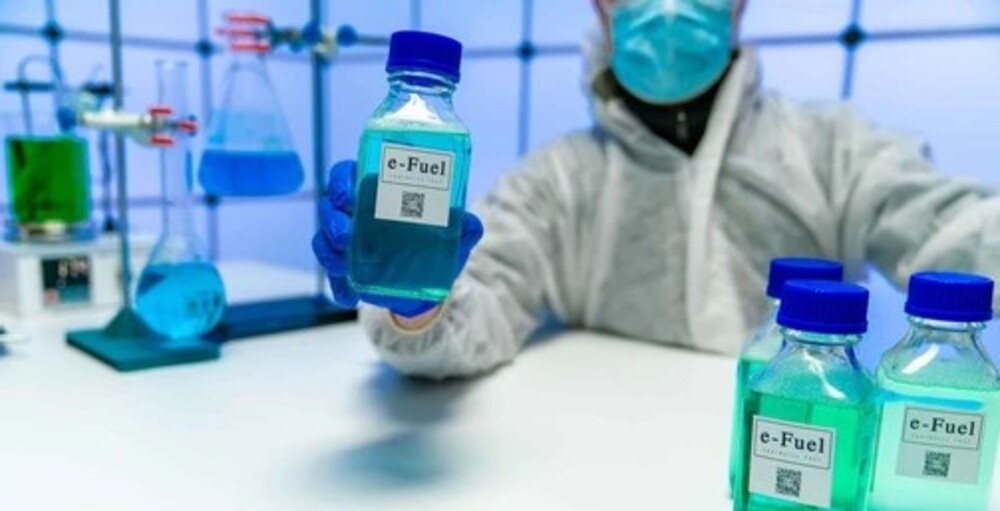As the EU sets out to end sales of CO2-emitting cars in 2035, Germany is pushing for sales of internal combustion engines (ICEs) that run on e-fuels after that date. E-fuels, such as e-kerosene, e-methane, or e-methanol, are created by combining hydrogen produced from renewable or CO2-free power with CO2 emissions that have been absorbed.
While the EU law would not ban ICEs, it would require all new cars sold from 2035 to have zero CO2 emissions, making it virtually impossible to sell new fossil fuel-powered cars. However, the question remains: can e-fuels be the solution for CO2-free cars?
What are e-fuels?
When burned in a combustion engine, e-fuels, which are CO2-neutral fuels, emit CO2 into the environment. The idea is that the emissions are equivalent to the amount taken out of the atmosphere to produce the fuel. Germany and Italy are calling for clearer assurances from the EU that sales of new ICE cars can continue beyond 2035 if they run on CO2-neutral fuels.
Who makes them?
While most major carmakers are betting on battery-electric vehicles, suppliers and oil majors are defending e-fuels. E-fuels are not yet produced at scale, but the world’s first commercial plant opened in Chile in 2021, backed by Porsche, with a plan to produce 550 million liters per year. Other planned plants include Norsk e-Fuel in Norway, set to begin producing in 2024, with a focus on aviation fuel.
Can e-fuels clean up cars?
Supporters of e-fuels say that they offer a way to cut the CO2 emissions of existing passenger cars. With e-fuels, there is no need in replacing every vehicle with an electric one. E-fuels can be used in today’s ICE vehicles. They can be transported via existing fossil fuel logistics networks. Thus that makes them good news for ICE car component makers and companies that transport petrol and diesel.
However, critics argue that manufacturing e-fuels is expensive and energy-intensive. They say it requires about five times more renewable electricity than running a battery-electric vehicle. Some policymakers also argue that e-fuels should be reserved for hard-to-decarbonize sectors such as shipping and aviation, which cannot easily run on electric batteries.
What’s next for the EU law?
Days before the final vote on the EU law Germany reacted. German Transport Minister Volker Wissing called into question Germany’s support for it. He demanded clearer assurances that e-fuels will be allowed after 2035. This action infuriated several EU legislators and diplomats. They fear that permitting one nation to torpedo a rule that had previously been agreed upon would jeopardize other painstakingly negotiated agreements on EU policies. One of Europe’s main climate change initiatives’ future is dubious right now.
What do companies want?
Members of the eFuel Alliance, an industry lobby group, include large oil and gas companies. Among them are ExxonMobil and Repsol as well as important German car components suppliers. Major German car components suppliers are Bosch, ZF, and Mahle. Carmakers such as Piech, Porsche, and Mazda are broadly supportive of the technology. Porsche holds a stake in e-fuel producer HIF Global and is the sole buyer of fuel from its pilot project in Chile. However, other carmakers, such as Volkswagen and Mercedes-Benz, are betting on battery-electric vehicles to decarbonize. BMW has invested in both e-fuels and battery-electric technology.

